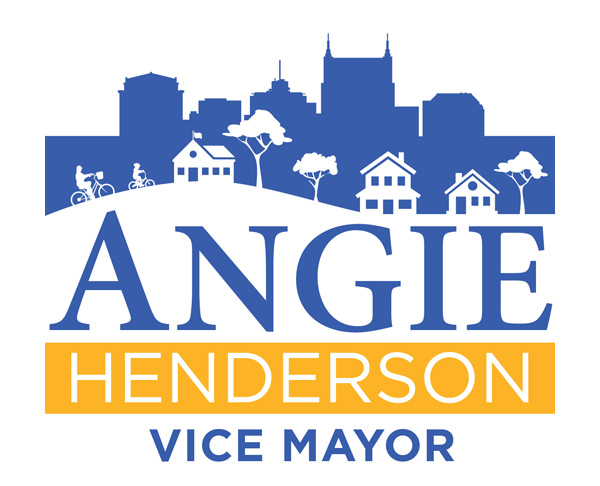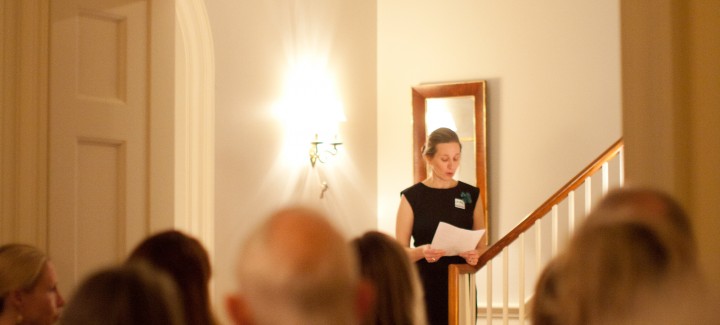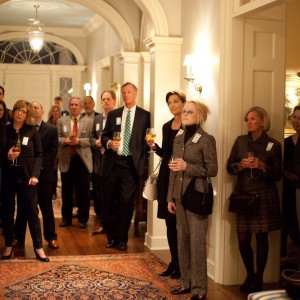At 4:15 a.m. on June 17th, the Council finished its all-night meeting addressing the 2020-2021 budget and companion tax levy. The budget passed by a vote of 32-8 and raised property taxes by 33.8% This means that for residents in the General Services District (GSD), taxes will increase by $1.033 per $100 of assessed value, and for residents in the Urban Services District (USD), taxes will increase by $1.066, per $100 of assessed value. 57% of District 34 properties are in the GSD and the 43% are in the USD. The new budget took effect on July 1.
Two months later, I’m still frustrated with the budget that ultimately “won” my vote. I share your disappointment, and know it’s reprehensible to elevate property taxes by 34% in any single year, and all the more so in the midst of the economic uncertainty Nashvillians are enduring. No one feels good voting for a marginally “less bad” budget, especially when there is multi-faceted disagreement about which budget is better or worse and why. With three proposed substitutes and over 30 potential amendments of varying viability, scale and impact, the FY2021 budget was a moving target of pros and cons for me till the very last minute.
Our marathon Council meeting to vote on the budget was the culmination of a six-week, entirely on-line process of unusually short department hearings, a very lengthy public hearing and independent amendment drafting that was the most difficult budget season in my service on the Council. There is so much potential to support and grow the good in our city government, but we remain stuck, for now, with a “maintenance of effort” budgeting process. The inertia of the status quo is strong and departments might add or subtract a person here or there in a meager attempt to “improve,” but often more significant programmatic and structural change is needed to help deliver beneficial and lasting changes in the community.
Is the Tax Increase Because of COVID?
Delays in addressing over a decade of accruing financial decisions is a heavy burden for our departments and our City. Previous administrations had been borrowing internally from other funds balances, selling real-estate assets, deferring debt service and compounding the fiscal reckoning. Accordingly, Briley’s FY2020 budget had a $40 million hole in it to be filled over the last year. The projected loss of $300 million in revenues due to COVID-19 made a reckoning unavoidable. Nashville’s well-diversified economy still relies heavily on tourism in our revenue calculations, but what makes this time especially awful from a fiscal management standpoint, is that already compounding fiscal problems and can-kicking converged with COVID-19 uncertainties. COVID is contributing, but it’s not “the reason.”
Does This Budget Show Ever Get Better?
Good process and transparency are fundamental to good governance. Nashville has a mayor-dominant system, and in past years, the Council has been in the dark on certain fiscal matters as much as citizens. It’s been a bit like being in a mystery show when members of the cast are finding patterns and clues, but can’t put them all together in time or convince enough people to stop and avoid the disaster. The key after the show ends is for the audience to keep watching closely and stay engaged as critics and participants.
Meanwhile, the rest of the year….
As your representative, I’m working year-round on matters with fiscal implications. I am working to improve ethics in procurement, accountability in spending, and to right-size departments and programs to deliver the level of performance that we as tax-payers should expect. I also continue to lead some of the Council’s most complex county-wide legislative efforts, which elevate our development standards, requiring developers to deliver more infrastructure from sidewalks to trees, which will make our city more environmentally and fiscally sustainable in the decades to come.
The budget vote receives the most attention each year, but it is not the only way in which I am representing and serving you. While you and I may have disagreed on this budget vote, we have likely agreed and will agree on many more votes. To those who have called and emailed in frustration, I heard you loud and clear, and did my best to respond to you all, but I know I missed some replies. The volume of messages was, understandably, especially high this year. Whenever possible, I called you to discuss the budget by phone, and those were good, sometimes difficult, and often lengthy conversations. District 34 residents have challenging questions and helpful suggestions–as always, I welcome your opinions, and our discussions inform my voting and my communication.
Video Window on Amending the Budget
I also heard clearly from Nashvillians over the last term a concern about corporate incentives. I have decried corporate incentives and the cronyism of special deals and imbalanced infrastructure participation agreements for preferred developers and corporations for five years, so all three of my proposed budget amendments to the budget addressed this policy area. For a glimpse into how I tried to improve this budget and our problematic process, please watch this short video from the budget meeting, as I make the case for my Amendment #24.
Given a crisis budget year, Amendment #24 zeroed out all $1.5 million in remaining annual “per job” corporate incentives. According to the Director of Finance, my proposed cuts were “draconian,” and I was “villainizing” corporations. Not true–all “per job” incentives were/are written with NO annual obligation by the City. They all have standard language indicating that they are conditional on availability of funds and the Council’s budgetary appropriation. There was zero legal concern about taking a hiatus this year, which Metro Legal confirmed. So, if we can’t cut this small, unnecessary amount out of our budget, when we are facing a supposed $300 million revenue shortfall and raising everyone’s taxes over 30%, what does that tell you about the majority of the Council’s willingness and ability to cut anything at all?
Please read this Tennessean article to learn more about the incentives Metro has paid out over the last three fiscal years (averaging $31M/year).
I think we could and should have made more cuts in this budget. I tried with my amendments packages to cut at least 5% out of each of the final two budgets before us, but unless 21 people on the Council agree with you, it is impossible for anyone other than the Budget & Finance chair to effectuate significant changes in the budget. But even so, I always try my best. My comprehensive amendments packages (one for the mayor’s budget and one for the chair’s substitute) failed to get the recommendation of the Budget & Finance Committee, but even so, I advanced them during the full Council meeting to make the point that bonus/optional programs should not be sacrosanct in lean times and also to have a debate about the wheel tax and elevate the Council and the public’s awareness of it.
Keep It Rolling. Wheel tax.
I think a modest increase in the annual, per vehicle wheel tax/licensing fee would have been a prudent way to lessen the impact of the property tax increase on single-income and fixed-income households, but several of my colleagues made assertions about it being a “regressive” tax and used a variety of “what-abouts?” for families with four cars. The actual impact of my proposal to that hypothetical four-car family, which is statistically more likely to be an affluent family, would have been just $52 a year. By the way, property tax is even more regressive than an annual use tax that can be applied via the budget to the management and maintenance of our roadways and mitigation of traffic impacts. The wheel tax/licensing fee was last increased in 2005, along with the budget. There are 600,000 plus cars registered in Davidson County, so the modest increase of $12 that I proposed would have garnered $6.5 million annually, a 2-cent reduction in the property tax increase. A $24 increase, would have garnered $14 million more annually and a 4-cent reduction, and so on. (I hope that we can keep this conversation going as we discuss the next transit plan and how to fund much-needed road safety initiatives.)
Alternatives? Frequent Questions:
- What about furloughs and layoffs? While I think various departments could have implemented some surgical furloughs, on the whole this would cripple city services. Most (not all) of the departments with which I interact closely are understaffed. Public Works has the same number of employees today that it had 20 years ago.
- What about using federal funding from the CARES Act ($121M)? This money is stipulated for virus response. It cannot be used to supplement lost revenue or for expenses that were existing prior to the virus in our operating budget.
- Could we raise the local option sales tax? This requires a voter referendum.
- Could we charge impact fees on developers? State law does not allow this.
- Could we issue more debt? Nashville already has $3.4B in outstanding debt (note that the entire state of TN has $1.7B in debt). Our annual debt service payments of about $343M are already approaching 15% of our operating budget.
The final vote. Why?
Ultimately, after all the amendments were considered, I voted for the Council’s substitute budget, rather than voting no and letting the Mayor’s proposed budget, which differed by 1-2%, become law. The budget I voted for had a compromise amendment that ensured funding for the implementation of the first phase of body-worn cameras and training of the next class of police officers. It also included $450K to open all Parks Department community centers on Saturday mornings and $15 an hour for the paraprofessionals who work in the classroom supporting the education of students with the highest needs. Discretionary spending for all departments in both budgets was cut the same 50%.
Tax Freeze Program Participation Up
The Metro Trustee’s Office administers this program for seniors 65 and older with annual incomes below $43,810, which allows applicants to freeze their property tax rate before the issuance of tax bills. Metro Council members, myself included, communicated frequently about this freeze option in anticipation of a property tax increase. This year, Metro extended the annual application deadline from April to July 1, subsequent to the passage of the budget. For District 34, this deadline extension and additional time during and after the budget for me to communicate with senior constituents and encourage them to apply, meant participation in the tax freeze program went up 23% this year, but still just 103 households in District 34 qualified for this relief.
A Marker for Accountability
Key to my vote for CM Mendes’ budget was that we included a provision that requires Metro’s Finance Director to submit by August 15th an updated report on the city’s revenues for the last quarter of FY2020. This was so that in case the city brought in more money than expected, Metro Council would have the opportunity to adjust the tax levy before tax bills go out on October 1st. While revenue projections were actually $100M above his department’s estimate for March, April & May, the Finance Director chose not revise his revenue estimate for FY2021. You can read his report here.
*As I was finishing writing this, I touched base with the new financial analyst in the Council Office. Reported last week, “other” tax revenues, which include alcohol and gas tax among others, are now in for June, along with final sales tax revenues and all together they are off just 8.7% from last year. May revenue which we did not yet have in the budget process was only down 0.73% from 2019. Sales + other tax revenues were down just 2.4% overall from last year.
Last Best Effort, My Amended Levy
In July, after much consideration and in an effort to prudently, lower the property tax burden for Nashvillians during these extraordinary times, and to honor the marker that we put down for an August review of actual and projected revenues and consideration of an amended levy, I requested legislation for a 5% reduction to the current tax levy, which would have meant…
- a 92 cent property tax increase for USD residents instead of $1.06
- an 89 cent property tax increase for GSD residents instead of $1.03
My substitute tax levy would have changed the 34% increase to a 29% increase, a modest reduction of $46 million in property tax revenue. (Every cent of tax increase = $3.32M of property tax revenue.) This would have been lower than the 12% decrease which was put forward in Councilman Glover’s bill. Council voted in support of my substitute bill to replace CM Glover’s bill, 32-8, but the vote on my bill as substituted failed 15-24, with 1 abstention. This was unfortunate because the bill was only on the first of three readings (pulled from consent by Councilman Mendes) and four more weeks till the final reading on September 1 would have brought more financial information to inform the analysis of a modest reduction in the levy.
Failure of my reduced levy was a frustrating conclusion to an extended budget season, but I wanted you to know that I did everything within my power to effectuate a lower rate for FY2021. Every year we pass a new budget and every year we are able to set a new tax rate to fund that budget. Next year is a reappraisal year, which by state law requires that the tax rate be made revenue neutral again.
To calculate the effect of the FY2021 tax levy for your household, here is the formula:
- For the USD tax rate of $4.221: $600,000 (appraised value) x 25% (assessment ratio) = $150,000 (assessed value) ÷ 100 (per $100 assessed) x $4.221 (tax rate) = $6,331/year or $527/month
- For the GSD tax rate of $3.788: $600,000 (appraised value) x 25% (assessment ratio) = $150,000 (assessed value) ÷ 100 (per $100 assessed) x $3.788 (tax rate) = $5,682/year or $473/month
Powerful People
Council rarely exercises the little influence and power that the Charter affords us, especially on matters of oversight and budgeting. Per the Charter, the Director of Finance has the sole authority to attest to availability of funds and to project revenues. The Council should NOT project revenues, but in a system of checks and balances, we should do independent financial analysis of projected revenue, ask good questions of the Finance Director and his staff, and expect detailed answers. We cannot abdicate our duty to push for better.
On August 4th, with pressure from the Director of Finance and the Chair of the Budget & Finance Committee, from my perspective, 24 council members threw in the towel prematurely on the possibility of a very modest tax reduction. The good news: 16 did not. Sixteen members were willing to keep the conversation going and the options open. Cold comfort though it is, this is progress. If we facilitate more constructive conversations, Council and the community learn more about our city’s financial history and current position, and that is never a bad thing. It is your money. When it comes to Metro’s finances, your elected representatives must take nothing for granted, be more skeptical, ask more questions, and keep pushing.



 nkly, when things get complex in this city, or involve multiple departments coordinating, too often they just don’t get done.
nkly, when things get complex in this city, or involve multiple departments coordinating, too often they just don’t get done.